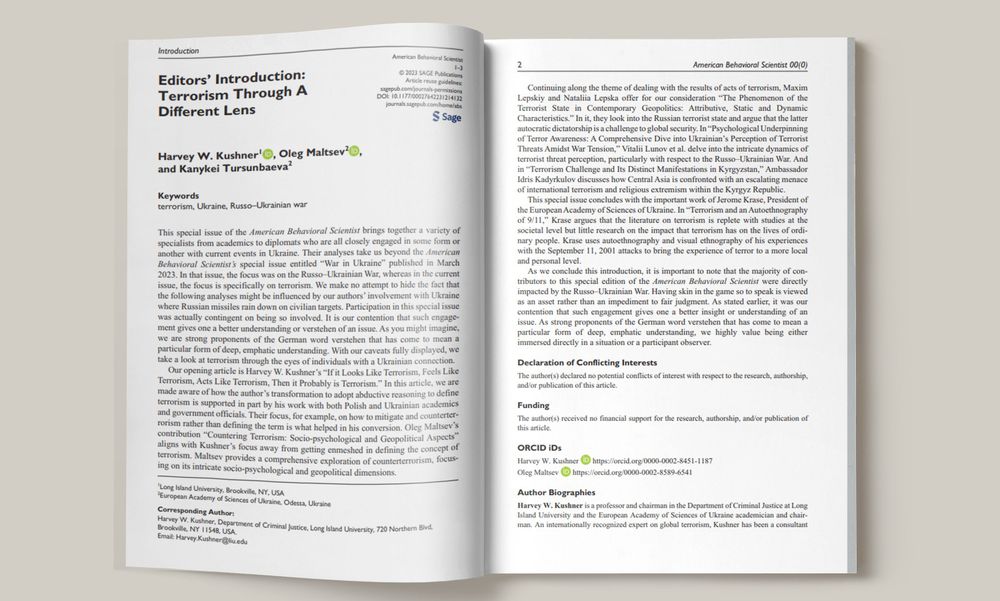Latest special edition of the American Behavioral Scientist: Terrorism through different lens
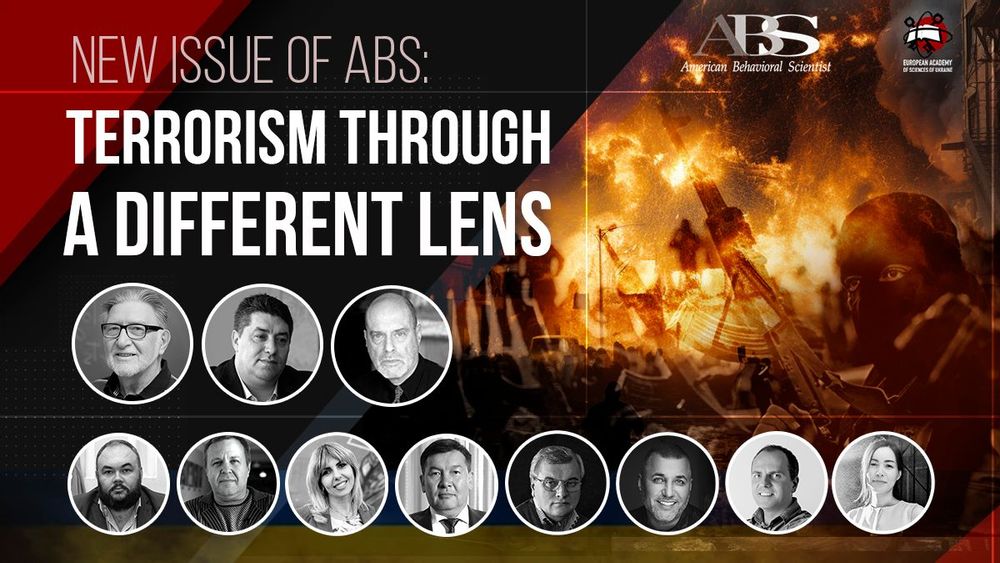
Exploring terrorism through the lens of unfolding events in Ukraine: Prepare to dive into thought-provoking perspectives in the latest special edition of the American Behavioral Scientist.
"Everybody's worried about stopping terrorism. Well, there's a really easy way: stop participating in it."
Noam Chomsky
Did you know that in the last decade there have been more than 10,000 terrorist attacks around the world? Terrorism — a term familiar to us all, yet its context is an ever-shifting landscape. As creatures inherently driven by a thirst for power, humans find themselves entangled in a perpetual struggle where certain parties seek to exert their influence over others. The motivations behind this quest for power vary, creating a complex tapestry of reasons driving individuals, groups, and states to pursue their objectives with force.
The rigorous study of terrorism has spanned over half a century, delving into realms like political science, criminology, psychology, economics, and emergency response. The continuous investment of efforts and millions of dollars into counterterrorism measures appears unyielding. It does appear to be a perplexing loop with no apparent way out. Perhaps it's time to shift our gaze and explore the complexities of terrorism from fresh perspectives. Are there untapped angles we're overlooking?
First and foremost, defeating the enemy becomes an insurmountable challenge if we remain oblivious to their identity and the roots of their existence. Issues of the past, particularly the ongoing events in Ukraine, have catalyzed the creation of a distinctive edition of the American Behavioral Scientist titled "Terrorism through different lens." The upcoming special edition brings together experts and scholars from EUASU, many rooted in Ukraine, offering fresh perspectives on terrorism. It's a deliberate effort to examine this complex issue from novel vantage points, seeking a deeper comprehension of its dimensions.
The American Behavioral Scientist (ABS) stands tall as a prestigious, peer-reviewed journal in the top Q1 quartile, commanding a prominent position in the realm of social and behavioral sciences. Notably, academics from EUASU have previously played a key role in crafting a special issue released in March 2023, titled "War in Ukraine." It underscores the journal's commitment to addressing critical global issues, especially the complex dynamics surrounding the Russian-Ukrainian war.
Within the pages of the "Terrorism through Different Lens" issue, authors present a fresh outlook on the essence, origin, and definition of terrorism, predominantly illuminated by the unfolding events in Ukraine, yet extending beyond its borders. What sets this issue apart is the firsthand perspective offered by some of our academic members physically present in Ukraine. Amidst the challenges of operating under martial law, they provide an unfiltered view of the events devoid of media distortions.
Quick glance at the articles in "Terrorism Through Different Lens":
Editors of the special issue Dr. Harvey W. Kushner, Dr. Oleg Maltsev and Kanykei Tursunbaeva write in the Introduction:
“It is important to note that the majority of contributors to this special edition of the American Behavioral Scientist were directly impacted by the Russo–Ukrainian War. Having skin in the game so to speak is viewed as an asset rather than an impediment to fair judgment. As stated earlier, it was our contention that such engagement gives one a better insight or understanding of an issue. As strong proponents of the German word verstehen that has come to mean a particular form of deep, emphatic understanding, we highly value being either immersed directly in a situation or a participant observer.”
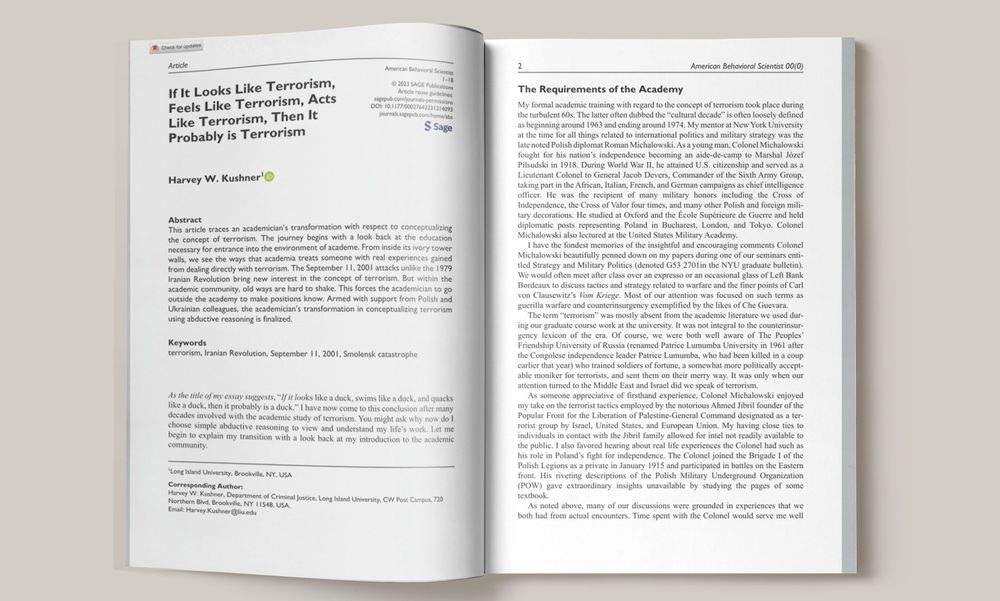
“If It Looks Like Terrorism, Feels Like Terrorism, Acts Like Terrorism, Then It Probably is Terrorism” authored by Harvey W. Kushner shows how the author’s transformation to adopt abductive reasoning to define terrorism is supported in part by his work with both Polish and Ukrainian academics and government officials. Their focus, for example, on how to mitigate and counterterrorism rather than defining the term is what helped in his conversion.
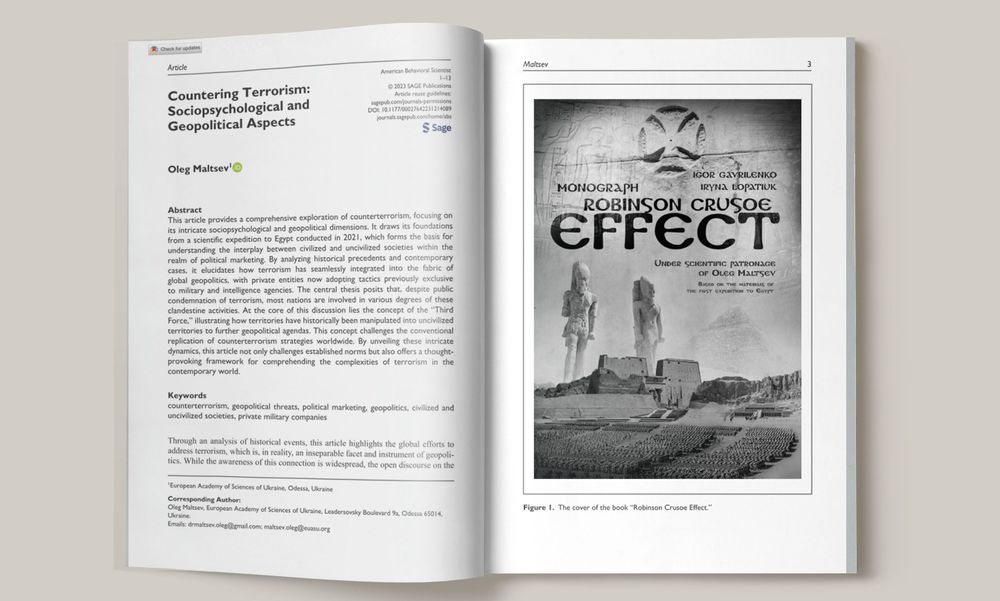
Oleg Maltsev's article, "Countering Terrorism: Socio-psychological and Geopolitical Aspects," unveils the formula of civilized vs uncivilized societies based on the field studies conducted in Egypt (2021). Maltsev emphasizes that terrorism is intricately interwoven into global geopolitics, with every “heavyweight” state playing a role to some extent and that the major step in combating terrorism is to have all nations admit their involvement, which is very unlikely to happen. The article defines terrorism as follows: “Terrorism is a fundamentally, a clandestine endeavor conducted by private third parties with the aim of addressing geopolitical, economic, or personal objectives within a specific territory.”
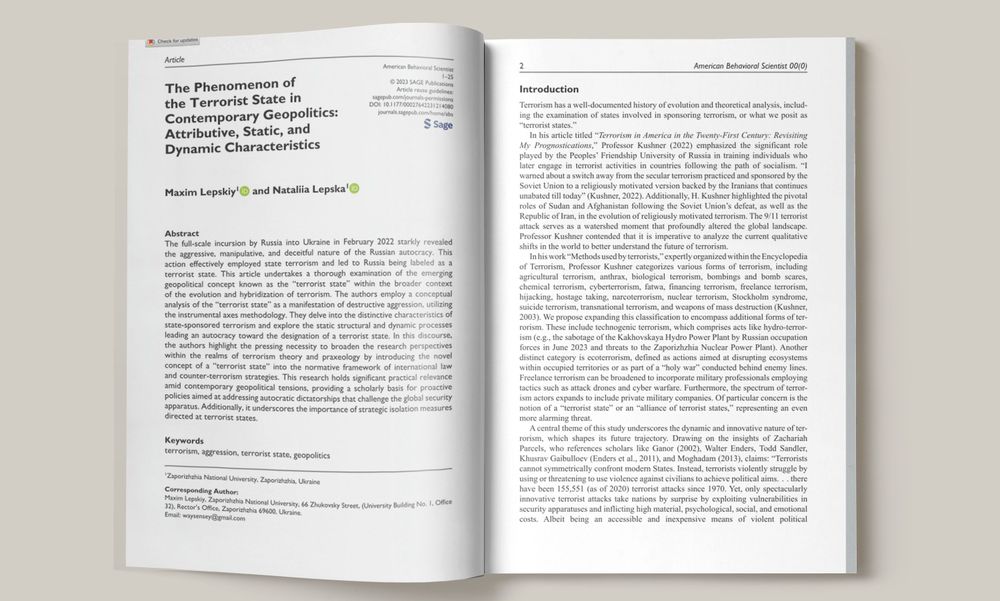
Maxim Lepskiy and Nataliia Lepskaya's article, “The Phenomenon of the Terrorist State in Contemporary Geopolitics: Attributive, Static, and Dynamic Characteristics,” provides an exploration of the geopolitical phenomenon of the terrorist state within the evolving landscape of hybridized terrorism. They advocate for the introduction of a new classification, the "terrorist state," highlighting how autocratic dictatorships pose a significant threat to global security.
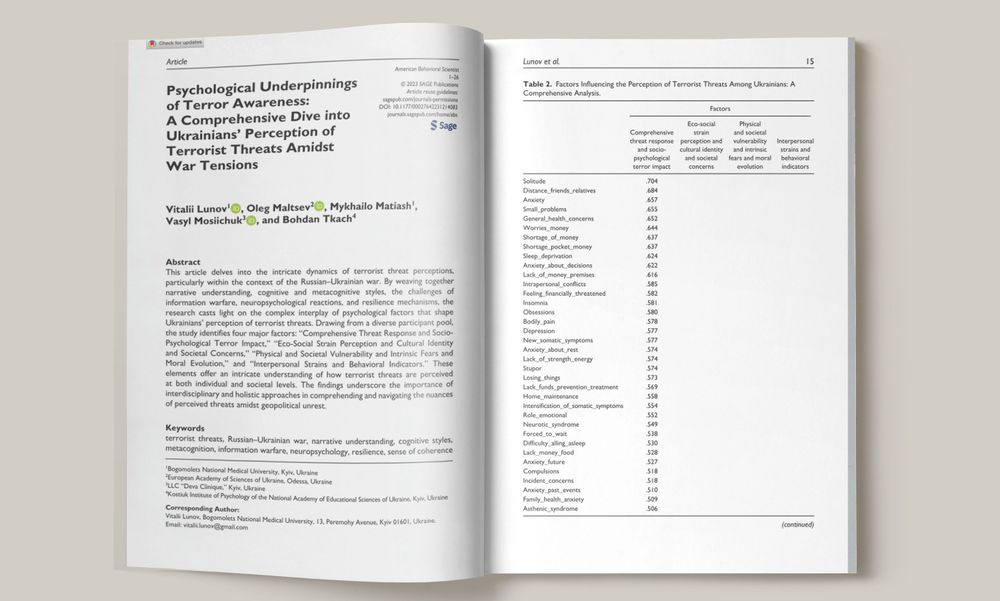
“Psychological Underpinnings of Terror Awareness: A Comprehensive Dive into Ukrainians’ Perception of Terrorist Threats Amidst War Tensions” authored by Vitalii Lunov, Oleg Maltsev, Mykhailo Matiash, Vasyl Mosiichuk and Bohdan Tkach delves into the intricate dynamics of perceiving terrorist threats amidst the Russian-Ukrainian war. Drawing from a diverse range of research participants, the authors illuminate facets that offer an insight into the individual and societal levels of perceiving terrorist threats.
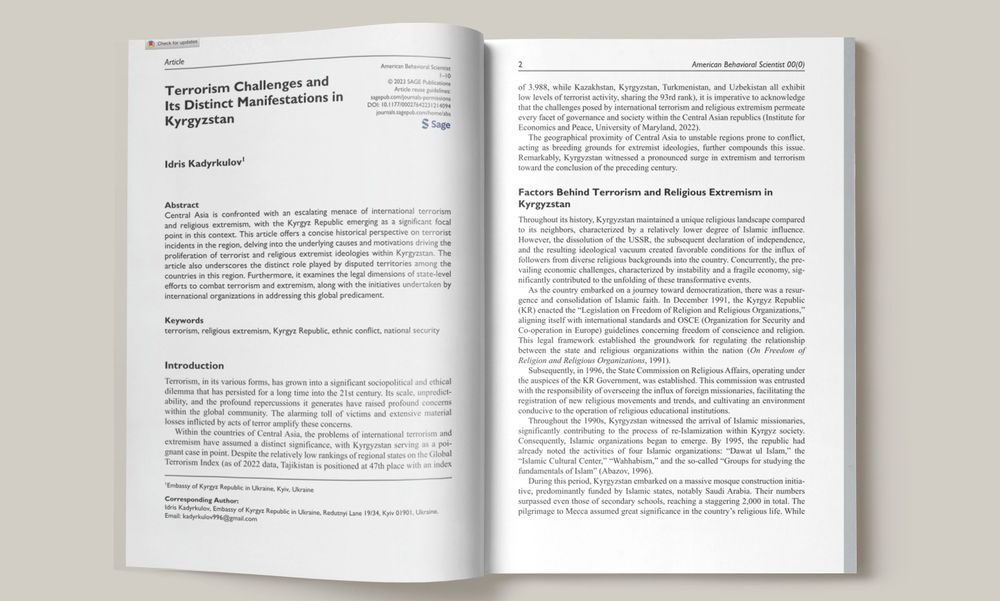
In “Terrorism Challenge and Its Distinct Manifestations in Kyrgyzstan,” Ambassador Idris Kadyrkulov discusses how Central Asia is confronted with an escalating menace of international terrorism and religious extremism within the Kyrgyz Republic. The author covers various aspects and factors that have influenced the spread of terrorism in the region.
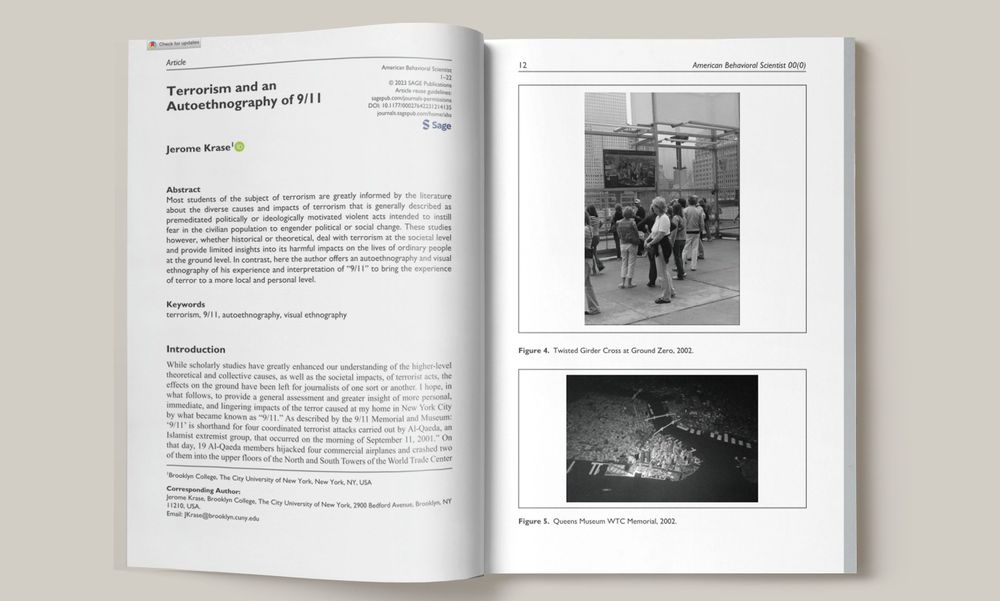
The special issue concludes with the important work of Jerome Krase, President of the European Academy of Sciences of Ukraine. In “Terrorism and an Autoethnography of 9/11,” Krase argues that the literature on terrorism is replete with studies at the societal level but little research on the impact that terrorism has on the lives of ordinary people. Krase uses autoethnography and visual ethnography of his experiences with the September 11, 2001 attacks to bring the experience of terror to a more local and personal level.
The EUASU Academy is devoted to continuous collaboration with forthcoming publications, and we share pride with our members for their substantial contributions to such a current and pressing subject!


